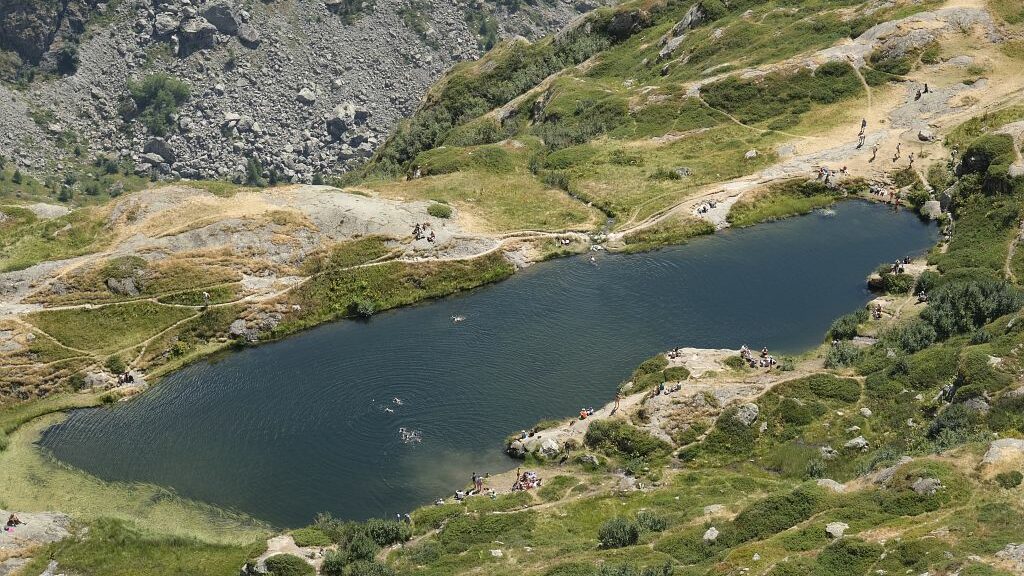Plouf – Pollution of high-altitude lakes and recreational use
Début du projet : 2024With successive heatwaves, bathing, bivouacking and water sports activities are becoming more regular and on the increase on the shores of high-altitude lakes, considered as islands of coolness in the mountains. Plouf, the result of a joint call for projects with the Zone Atelier Alpes (ZAA), proposes a better understanding of this new challenge.
 © Dominique Vincent/PNE
© Dominique Vincent/PNE
High-altitude lakes are emblematic of high-altitude environments and convey an image of unspoiled nature. However, like all high-mountain ecosystems, they are highly exposed to climate change and the impacts of human activities. Among these, the cumulative impacts of the many recreational uses (fishing, swimming, setting up high-altitude refuges, etc.) to which they are put are still poorly understood.
Since the Covid-19 health crisis in 2020-2021 and the dry, scorching summers of 2022 and 2023, managers of protected natural areas have noted an increase in recreational activities linked to lakes (in search of freshness) and their diversification (swimming, boating, paddling, etc.).
The aim of this project is to study the impact of activities to ensure the preservation of mountain lakes in the face of increasing human use of these fragile environments. It will enable recommendations to be made to mountain lake managers (protected areas, communes or communities of communes, ski areas, etc.) and to the various users (mountain socio-professionals, nature sports enthusiasts, etc.).
The studies will be carried out on two lakes: Lac du Lauvitel (Isère – Ecrins National Park) and Lac de Pormenaz (Haute-Savoie National Nature Reserve). The results will be used by all high-altitude lake managers.
Researchers associated with the Plouf project :
Raphaelle Napoléoni (Aster-CEN 74), Christine Piot (Edytem), Clotilde Sagot (PNE).
Search Aiguilles Rouges Ecrins Climate and ecological transitions Natural areas, resources and biodiversity Tourism and recreational practices

